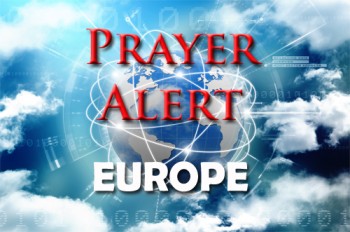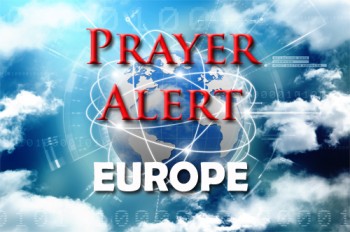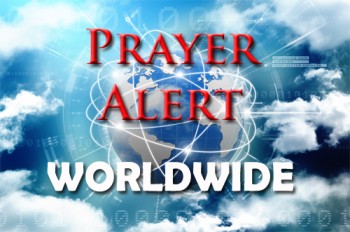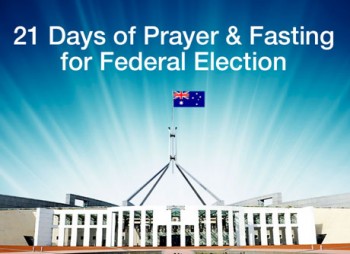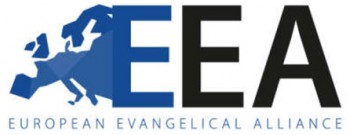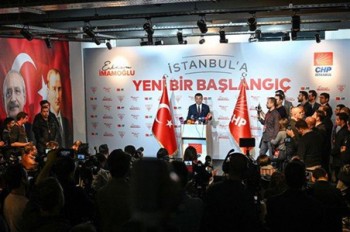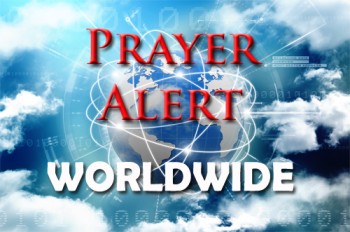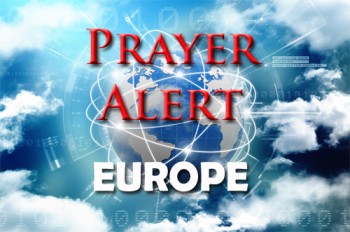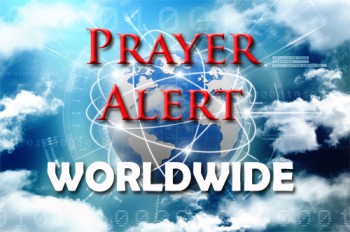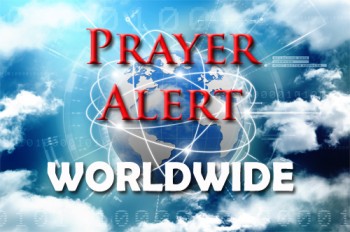Displaying items by tag: elections
European parliament elections: Brexit Party
73 MEPs will be elected in the UK on 23 May, and the Conservative party potentially faces an angry backlash from voters. Nigel Farage’s new Brexit Party has more support than the two traditional British parties combined. Britain’s education minister Damian Hinds said that the elections were a second referendum that would be difficult for Conservatives. The latest opinion poll gives the Brexit Party 34% of the vote, yet it was only founded in April. Fourteen of UKIP's seventeen MEPs have defected to it. Nigel Farage said there has been a breakdown of trust between people and politicians, as the two main parties have failed to deliver the result of the Brexit referendum. See
European parliament with anti-European parties
After the Second World War many said, ‘Never again’. For decades extreme nationalism was considered a threat. In 2019 it has re-emerged with European far-right parties forming a new alliance led by US strategist Steve Bannon, wanting to ‘promote’ right-wing populist groups in Europe. Matteo Salvini, Italy’s leader of the extremist League party, has joined ‘The Movement’ and has gathered right-wing Netherlands Party for Freedom, Germany’s AfD, Danish People's Party, the Finns Party and other extremist populist parties to form a new alliance, injecting their rhetoric into the EU; selling themselves as ‘maintaining or protecting their heritage and their people (they warn that refugees, Muslims, empowered women, and the EU bring unwanted change, which is a bad thing). A YouGov survey for voting intentions shows that the European parliament will be significantly different after 25 May with 35% of seats taken by socialists, Greens, the European People’s Party, and other anti-European parties. See
South Africa: pivotal elections
Twenty-five years ago, under Nelson Mandela, the African National Congress (ANC) party ended apartheid, but since then it has governed poorly. Four in ten South Africans still live in poverty. Half of young people are unemployed, in an unequal society caused by corruption at all government levels. Seven out of ten South Africans don't trust politicians and many under-30s did not bother to vote in the 8 May elections. At the time of writing, ballot results are trickling in with the results expected on 11 May. The weakness of its challengers means that the ANC is expected to win again, but national projections show a drop in support of 8%. Recently the ANC replaced President Zuma with his deputy, Cyril Ramaphosa, who is attempting to recover stolen state funds. So far he has been unable to remove the deeply entrenched crony networks of corrupt local officials and power brokers who deliver many votes for ANC. See also the previous article, and
Australia 21 Days of Prayer for National Elections
21 Days of Prayer & Fasting 28 April – 18 May 2019
“If My people who are called by My name will humble themselves and pray and seek My face, and turn from their wicked ways, then I will hear from heaven, and will forgive their sin and heal their land.” - 2 Chronicles 7:14
We ask for Christian leaders and churches of all denominations from all over the world to pray for Australia, as wethe People of Australia, Pray and Fast for 21 days up to the Federal Election, Saturday 18 May 2019.
This prayer call was inspired by Ps Margaret Court’s love for Australia, her passion “for the church to arise and be a strong voice for righteousness, truth and justice”and her love for the word of God which says that, “Righteousness exalts a nation, but sin is a reproach to any people.”Proverbs 14:34.
“Hear me, O LORD, hear me, that this people may know that you are the LORD God, and that you have turned their heart back to you again.”1 Kings 18:37
- Pray that God would rule over this election that righteous leaders would be elected to govern Australia in truth and justice because, “When the righteous are in authority the people rejoice.”Proverbs 29:2
- Pray God’s blessing upon Australia’s parliamentarians and leaders, including their families and all the candidates of all the parties standing for this federal election.1 Timothy 2:1-3
- Pray for a multiplication of prayer and unity across the Body of Christ in Australia that people will wakeup to the dangers facing our nation and respond in prayer. Ephesians 5:14
- Pray for a Spiritual Awakening for Australia, Revival and Transformation for Australia and the proclamation of the Gospel of the Lord Jesus Christ. John 3:16
Warwick Marsh
Promo Video: https://www.youtube.com/watch?v=rTowvtNdkzc
Facebook Video: https://www.facebook.com/nationaldayofprayerandfasting/videos/386871382169790
For More Info &Daily Devotions: http://www.canberradeclaration.org.au/prayer/election-2019
Europe: Praying for the Parliamentary Elections 23-26 May 2019
Christian Responsibility for Europe
Uniting in prayer, hope, reflection and action
Shaping Europe’s future – the European Parliament
The European Parliament can seem remote from daily life but it helps to shape the values and direction of our continent. Through its power to block and amend legislation and to lobby hard for other changes, the European Parliament has huge influence. Between 23rd and 26th May, EU citizens will get the chance to vote and thus collectively choose who will represent them at European level until 2024.
What will the European Union look like in 5 years’ time? What values will European society prioritise? Members of the European Parliament (MEPs) will have a big say over the answers. What challenges will this continent face? MEPs will help choose Europe’s response.
Europe needs prayer
Of course it is always important to pray for politicians (1 Timothy 2: 1-4) and election seasons are especially significant. But, if we step back and look at our continent as a whole, it is clear that Europe is in trouble. So the importance of intercession is huge. Across Europe, fear, division and even anger are common, truth is often getting lost or ignored in the noise. Every nation and the EU institutions themselves are falling short of God’s standards as Evangelicals have historically believed them to be. We have been given good gifts of family, freedom, nation, human rights, security, sex, often relative economic prosperity, etc. but we have turned them into idols as we prioritise them over the Lord or distort them from what he designed them to be. Secularism, meanwhile, makes politics itself an idol and tries to silence other faith-inspired voices. There is also a growing culture of “them versus us” in which many believe that those they disagree with are completely wrong whereas they are completely right. This makes it difficult for people to see good in those who oppose them or to examine their own faults. As a result, wisdom is lost, pride and stubbornness abound.
Hope and responsibility
Individual Christians can feel powerless as they look at these socio-political and economic challenges. We can wonder if there is any point in praying about elections. But, hope returns when we focus our attention on the King of Kings, the one who is in ultimate charge and isworking out His eternal Kingdom purposes no matter what. As we remember that we are called to pray that “His will be done on earth as it is in heaven”, we are motivated to persevere in our intercession. But it also means that we have homework to do – to work to understand what is happening on earth and equally try to understand the will of the Lord. We do this in humility, remembering that we will not fully comprehend until Jesus returns.
Strength in unity
There is particular power and wisdom in praying and reflecting together with other Christians. The diversity of local Church (and indeed Church at national or European levels) means we can choose to understand the lives, problems, gifts and opinions of those who are very different to us. Our identity in Christ gives us a firm foundation for mutual respect, collaboration and the possibility of softening our opinions. We know that, when we pray in humility, repentance and unity for our nations, we can be confident that the Lord listens and will heal (2 Chronicles 7: 14). And when we consider socio-political matters with those who are different to us, it becomes much easier to find a truly biblical perspective on what is important.
A biblical worldview sustains democracy
There is much we can agree on from the Bible. We know that every single human being is made in the image of God and, therefore, has infinite value. So Christians are united in wanting to see European society valuing all, no matter their sex, age, ethnicity, faith or worldview, “economic usefulness”, health or if they are yet to be born etc. As image bearers, every human has the capacity for immense and creative good, so we seek a Europe where there is opportunity for that flourishing contribution from each one. But, since the Fall, each human is capable of unspeakable sinfulness. And so public policy and, indeed, the political system itself must take this into account.
It is this biblical worldview which has provided the foundation for sustainable democracy and free societies.
- Since human beings can do good, they should be able to contribute to the political decision making system and to society.
- Since human beings can do evil, democratic systems should spread power as widely as possible, not allowing any individual or institution to dominate.
- Since every human being has infinite worth, politicians should work for the good of all, including those who did not or could not vote for them.
So let’s be proactive in our praying, voting and influencing to speak up for these core biblical principles and to protect and strengthen the health (in God’s eyes) of our democracy, nations and continent.
Uniting despite differences
As Christians, we should be able to agree on foundational principles of what the Lord would want but there will still be much we continue to disagree on. Since no political party has a monopoly on truth and wisdom, Christians will vote in different ways. But, there is still huge value in praying and discussing together, asking for the Lord’s blessing and mercy, and seeking to understand what is needed for His Kingdom values to be more strongly reflected across our continent.
Therefore, the European Evangelical Alliance urges its members and local churches across the EU to unite in
- non-partisan intercession for our nations and continent,
- biblical reflection about the Lord’s values, listening to other opinions, asking big questions,
- challenging untruth, disrespect and idolatry,
- encouraging people to study political manifestos carefully and to vote.
Politics has its limits
However, no matter how important these elections are, politics becomes an idol when we expect it to solve every issue, give 100% guarantees of security and answer our every need. We look to the King of Kings first, trusting in His sovereignty and ultimate Kingdom purposes. And we also understand the responsibility of citizens to contribute to the common good. Local Church has a particular joyful task to offer the hope of Jesus Christ in word and deed. There is so much anger, fear, loneliness, injustice and hardship around. The Church is doing a vital job in serving communities, reaching out to the most vulnerable, encouraging neighbourliness, building peace, offering hope for today and ultimate hope for eternity. Let’s keep going, whatever happens in political life.
Pray for the European Parliament elections 23-26 May 2019
Christians may vote for different political parties but there is great significance in praying together in humility and unity for our nations and continent.
Here are suggestions for united intercession. We invite people to pray in non-partisan ways
so that all Christians can say AMEN.
Let’s pray for
- the well-being of all candidates and their families during this stressful time,
- peaceful and safe campaigning and voting,
- truth to be sought, seen and heard, valued and accepted,
- opportunities for respectful debate, with a variety of voices being heard,
- growing support for core biblical values, including love, truth, justice, righteousness, forgiveness, integrity, respect, service and generosity,
- the success of politicians who will
- preserve and strengthen democracy and freedom,
- work for the good of all, including the weakest and most vulnerable,
- be a blessing to their nation but also work well with politicians from other nations.
- The next 5 years of the European Union to be a period
- where mutual respect and listening in political debate increase,
- where every Member State of the EU is able to be and to offer its best to the whole and to be humble enough to learn from others,
- where there is greater understanding of the value of every human being,
- where wise and just decisions are made to face the many economic, technological, environmental, social and security challenges Europe faces, and where the weakest are better protected,
- where freedom of religion or belief and of expression are strengthened,
- where decisions are made at the appropriate level – European, national, local,
- where there is a stronger connection and trust between politicians and officials and the citizens of the European Union.
Turkey: Erdogan’s Party Demands New Vote After Loss
By: Richard Pérez-Peña (New York Times, 4/9/2019)
Trying to reverse a stinging setback, Turkey’s ruling party on Tuesday demanded a redo of last week’s election for mayor of Istanbul, the country’s largest city and long a source of power and prestige for President Recep Tayyip Erdogan.
The extraordinary stance came as it became increasingly clear that a days-long recounting of ballots would not change the result that Binali Yildirim, the candidate of Mr. Erdogan’s Justice and Development Party, known as the A.K.P., had lost to the opposition candidate, EkremImamoglu, in the March 31 election.
Mr. Erdogan’s party had already demanded a recount of spoiled ballots in all of Istanbul and a full recount in some of the city’s districts. When that did not change the result, it called for a recount of the entire Istanbul vote, which the High Election Council refused.
The latest demand now puts the High Election Council squarely on the spot and threatens to precipitate a crisis for both Istanbul and the entire country, becoming the latest test of democratic institutions already groaning under the authoritarian strains of Mr. Erdogan’s 16 years in power.
“I find the chances extremely high that the election board will accept A.K.P.’s request to repeat the elections,’’ said SonerCagaptay, director of the Turkish Research Program at the Washington Institute for Near East Policy.
‘‘Far from being independent, the election board, like other institutions, has fallen under Erdogan’s power, and I would say the board has thus far taken steps to facilitate Erdogan’s each and every next move,’’ he added.
He noted that the council had already allowed a recount of invalid ballots, even though the A.K.P. presented no credible evidence, other than a narrow margin, that there had been irregularities.
That has not stopped the party or the president from alleging that the irregularities were systemic in Istanbul, where the candidates are separated by less than 0.3 percent of almost nine million votes cast.
“We will use the extraordinary appeal grounds and say we want to renew the elections in Istanbul,” Ali Ihsan Yavuz, the deputy head of the party, said at a televised news conference in Ankara, the capital. “Everywhere in Istanbul, organized acts were done. That is why we called it organized irregularity.”
Mr. Erdogan himself has cast doubt on the election and pressed the case for a do-over by citing examples of American elections where the margin was so narrow that the balloting was redone.
“Irregularities are not just a few, almost entirely it is irregular,” he said on Monday of the election in Istanbul, speaking at Ataturk Airport before leaving for a visit to Moscow.
Murat Yetkin, formerly the editor in chief of Hurriyet Daily News, wrote on his blog this week that even those in the president’s circle were divided about how far to push the challenge, with a small, determined group urging the president to “put his weight for renewing Istanbul elections.”
A second, larger group of more experienced politicians have argued to accept the results, because the challenge is actually benefiting Mr. Imamoglu by elevating his stature.
Judging by Mr. Erdogan’s statement this week, the hard-liners may be carrying the day, though it may also be a way for the president ‘‘to manage the trauma,’’ said OzgurUnluhisarcikli, the Ankara director of German Marshall Fund.
‘‘This looks like more to redefine the defeat in Istanbul as if it was actually won but stolen by illegitimate means,’’ said Mr. Unluhisarcikli, who noted that a new election would actually be quite risky for the president as the economy continues to deteriorate.
“I do not believe that Erdogan actually wants to renew the elections,’’ Mr. Unluhisarcikli said. ‘‘The economic realities do not allow this. It would be a huge gamble.’’
The result in Istanbul carries enormous weight, however, and there are clear incentives for the president and his party to fight a loss.
With 15 million people, most of them on the European side of the Bosporus, Istanbul is the most populous city on the Continent and Turkey’s economic capital. It is also Mr. Erdogan’s hometown and has long been a base of support for him.
Just as important, the opposition and some analysts say, the city has become a vital source of wealth in a network of cronyism and nepotism that has benefited from the awarding of municipal contracts and the distribution of city funds to charitable foundations with links to the president’s family.
Even before he has been officially declared the winner, Mr. Imamoglu, who ran for the opposition Republican People’s Party, has vowed to open the books of the city, which Mr. Erdogan and his party have controlled since 2002, to expose long-simmering accusations of corruption.
“The result of this election is clear,’’ Mr. Imamoglu said at a televised news conference on Tuesday, when he repeated his desire to take office and start working immediately. ‘‘The streets accepted the result. You can work hard and win five years later. We have won, admit it.”
Last week, Mr. Imamoglu said that with its continuing challenges to the result of the election, Mr. Erdogan’s party was stalling for time so that it could erase City Hall records from computers before independent auditors could carry out the review he promises.
Such allegations have taken on more weight with voters as the Turkish economy falters, undercutting the president’s long record of nearly unbroken economic growth. Turkey entered recession this year, and the currency, the lira, has continued to slide amid increasing worry by investors and markets.
The opposition party also won a close mayoral election in Ankara, a result that the election council has finalized. The potential loss of Istanbul would place both the country’s political and financial capitals in opposition hands.
Taken together with rest of the results from the March 31 elections, the balloting reflected increasing discontent among voters with Mr. Erdogan, who has concentrated executive powers, carried out a sweeping purge of opponents after a failed 2016 coup, and brought a once-vibrant news media to heel.
The High Election Council must consider the request by Mr. Erdogan’s party for a new election, but the opposition party insisted that the result was legitimate and clear.
“Both legally and conscientiously, there is no obstacle to giving EkremImamoglu his mayoral certificate,” FaikOztrak, the opposition spokesman, said in televised remarks. “Mr. Imamoglu is right now the elected mayor of Istanbul, as he was on the morning of April 1.”
He pointed out that Mr. Erdogan’s A.K.P. party had won many districts in Istanbul as well as other towns across the country, results that were not being challenged.
“So when A.K.P. mayors are elected it is the national will, but when the votes go to Imamoglu, it is dubious,’’ Mr. Oztrak said. ‘‘Even crows laugh at that. They should leave the nation alone.”
Pray for Turkey government
- We continue to pray that current Turkey government would heed to the final result of March 31 election in Istanbul as well, not calling for new vote.
- Pray that Turkish people would have the final and decisive voice regarding all political matters and ruling their own country as a democracy.
- Pray that all peoples in Turkey would find the True and Eternal Hope in Jesus Christ and His Kingdom rather than any earthly government.
More:http://silkwavemission.com/board.php?board=english&command=body&no=1037
Israel: elections
Israelis will vote in national elections on 9 April. The campaign has been divisive, confusing and ugly, yet our prayers can declare the fundamental truth that our God reigns. The Friday prayer points sent by Intercessors for Israel can inspire our prayers for God’s chosen leader for His nation at this time. ‘Lord of all, rule over these elections so that the government of Your choice will be chosen. May Your will be done in Israel as it is already done in heaven. Raise up righteous men and women to lead this nation. Remove all confusion and bring clarity to Your people. Let there be light to guide Israelis as they decide who to vote for. Overrule any plans of the enemy that are trying to manipulation these elections for his demonic schemes. Protect all Israel from manipulation and witchcraft. Move the Arab-Israelis to vote against Arab politicians who are more concerned with the Palestinians that with their own constituents.’
Moldova: democracy faces risks
Lack of transparency and accountability has allowed corruption to flourish in Moldova’s politics. February’s parliamentary elections saw many long-standing politicians swept out of office, but results were inconclusive. None of the major parties secured a majority. Three parties exert a powerful political influence over key state institutions, including the judicial system. If they are unable to negotiate a viable coalition agreement, or if the final results are not validated, new elections could be called. In the run-up to elections, some candidates accused the authorities of poisoning them. Toxicology reports showed elevated mercury amounts in their blood. Journalists could not access information about political developments, and politicised media ownership reduced consumers’ exposure to diverse viewpoints. The route to a stable government remains unclear.
Israel: could Netanyahu form a government?
Elections are on 9 April and a new poll, taken after the attorney general said he would indict prime minister Benjamin Netanyahu on corruption charges, shows that he could not form a right-wing government if elections were held today. 68% of the public want him to resign now or after he is formally indicted. Following the announcement of pending indictments for bribery, fraud, and breach of trust through receiving gifts from supporters, and alleged media collusion to give him favourable coverage in return for political and regulatory favours, Netanyahu’s response was a combative speech declaring the investigation a left-wing witch hunt to aid the election of his primary rivals - the Blue and White party The poll currently gives Blue and White 37 seats and Likud 29. Netanyahu holds the record for the longest sitting single term of any Israeli prime minister.
Sudan: street protests since December
A parliamentary committee tasked with amending Sudan’s constitution to allow President Omar al-Bashir to run for another term said it would indefinitely postpone a meeting to draft these changes. The president, a former army officer who came to power after a military coup, is facing unprecedented opposition to his rule, with street protests involving hundreds of people almost daily since mid-December over food prices, cash shortages and his 30-year rule. 75-year-old Bashir blamed protests on foreign ‘agents’ and challenged his opponents to seek power through the ballot box. Elections are expected in 2020. Sudan’s authoritarian government is ruled as an Islamic state with limited rights for religious minorities, freedom of speech restrictions, press restraints and multiple church building demolitions. Human Rights Watch reported over 51 deaths in nationwide rallies being subdued by riot police.
